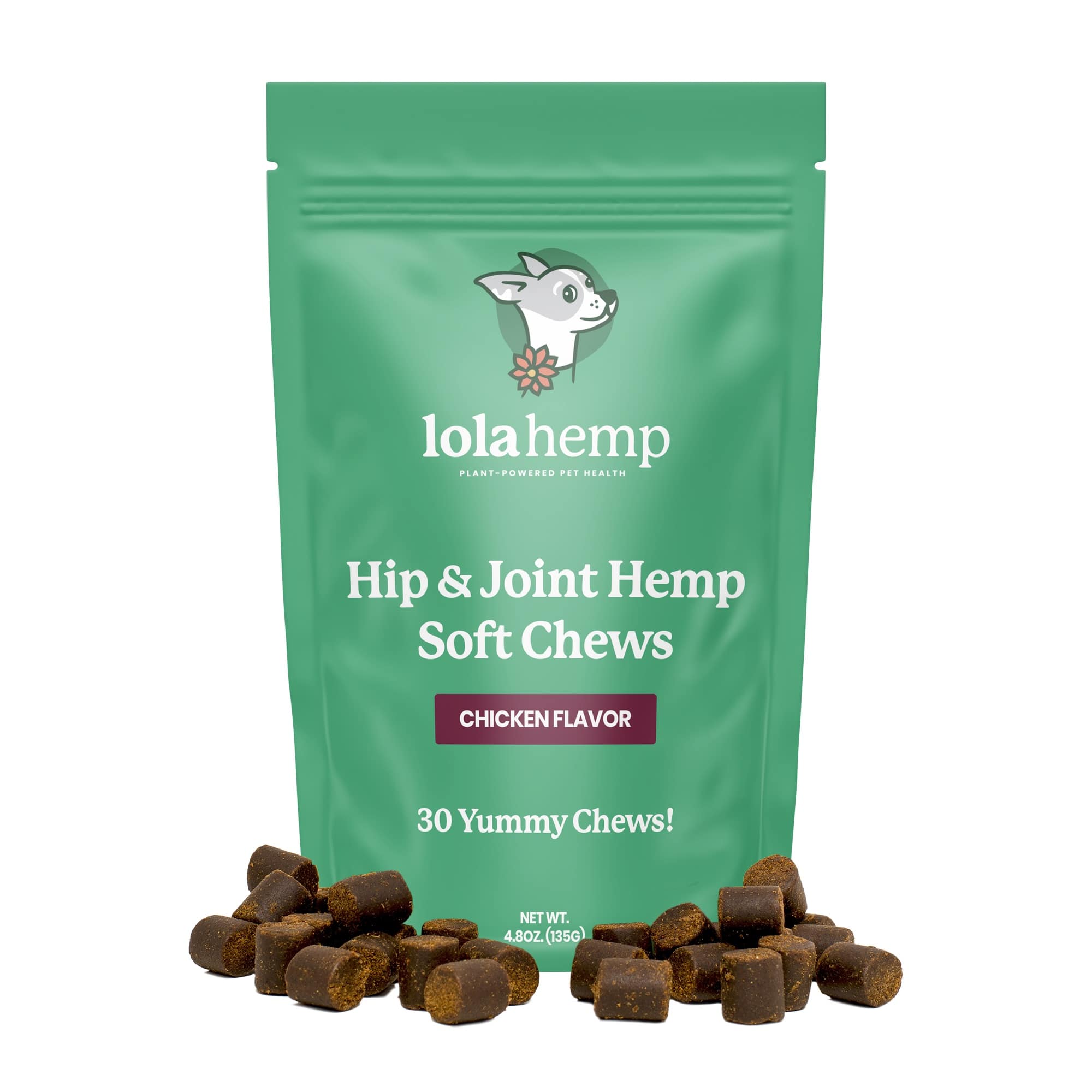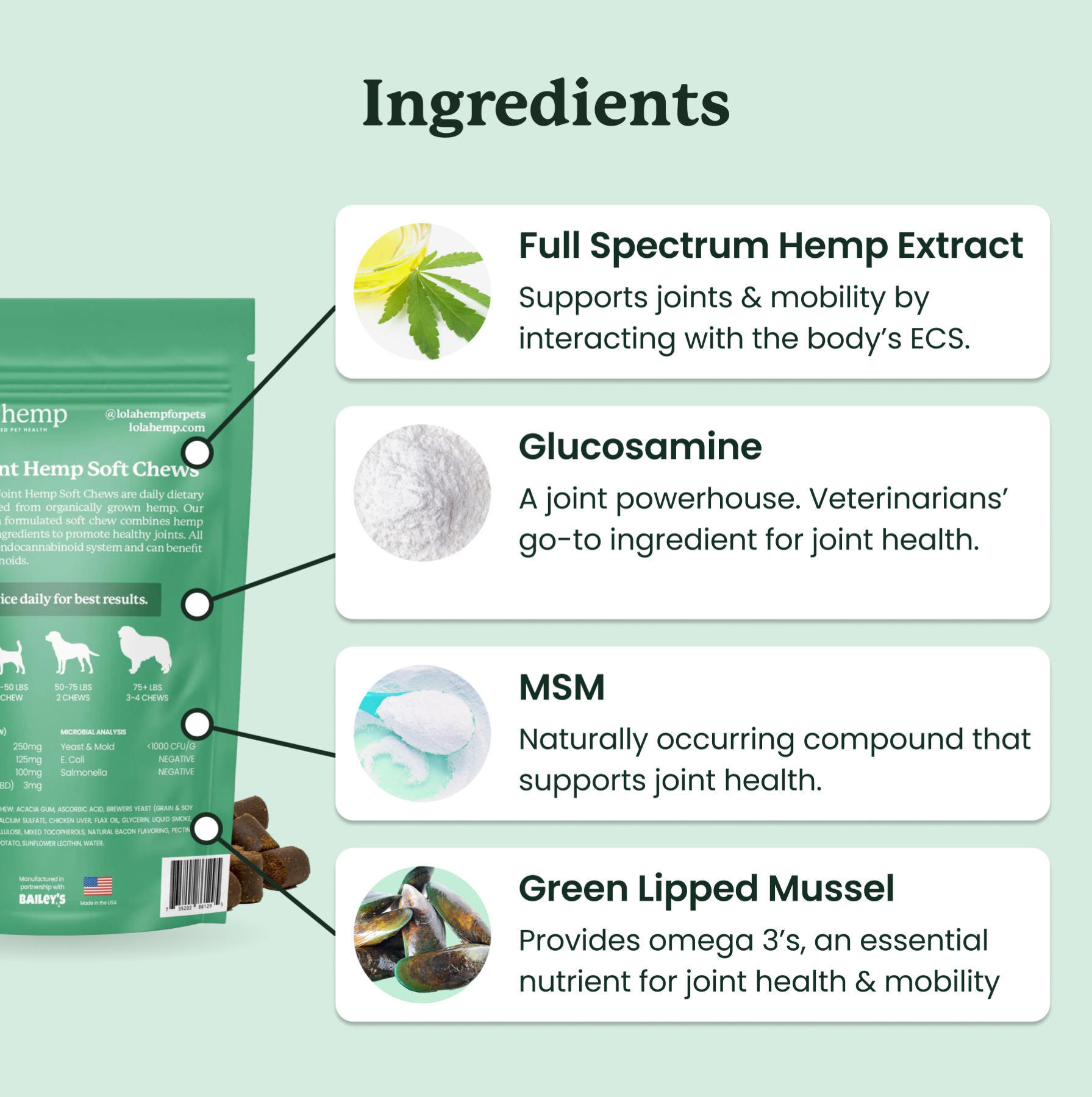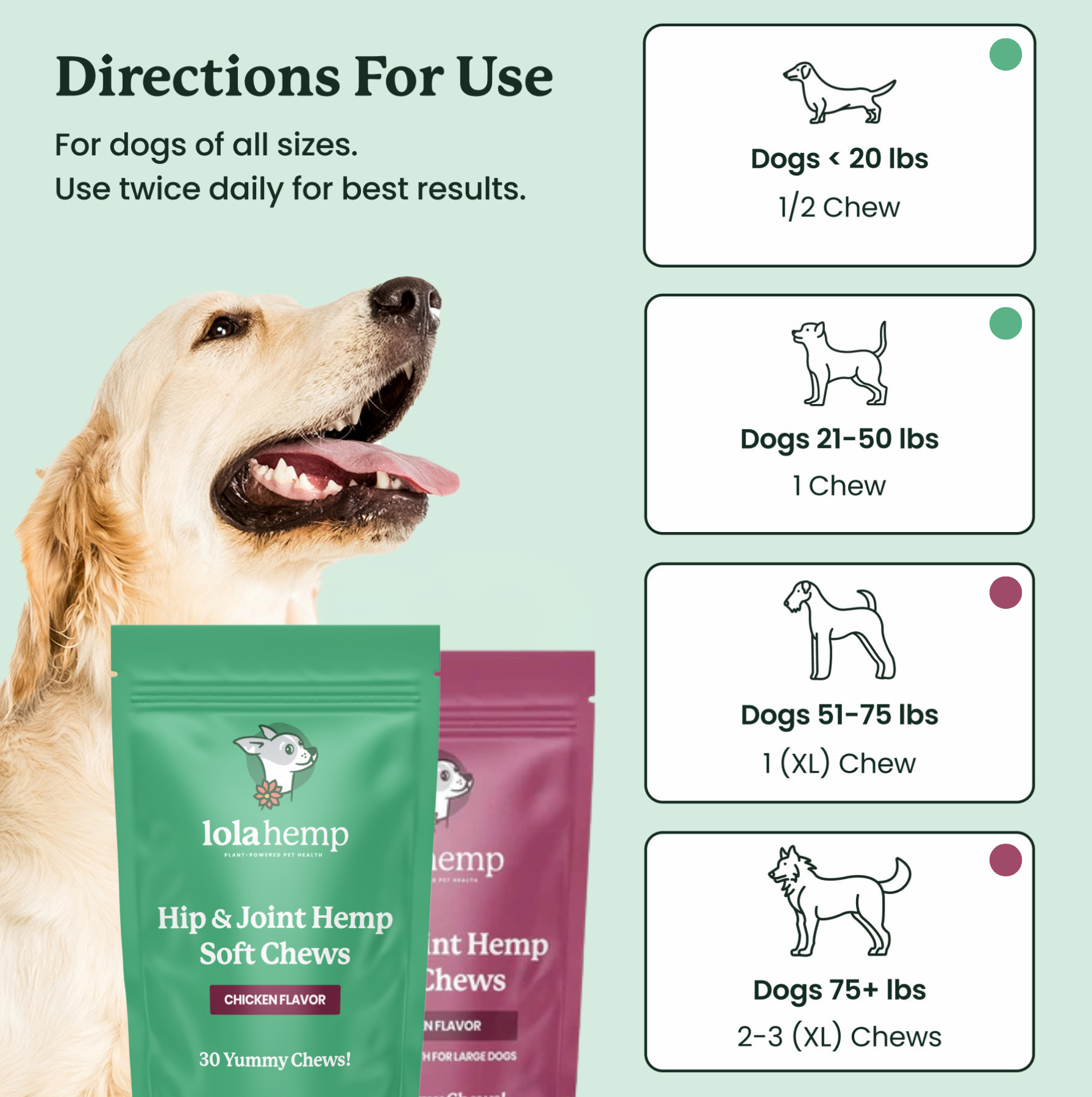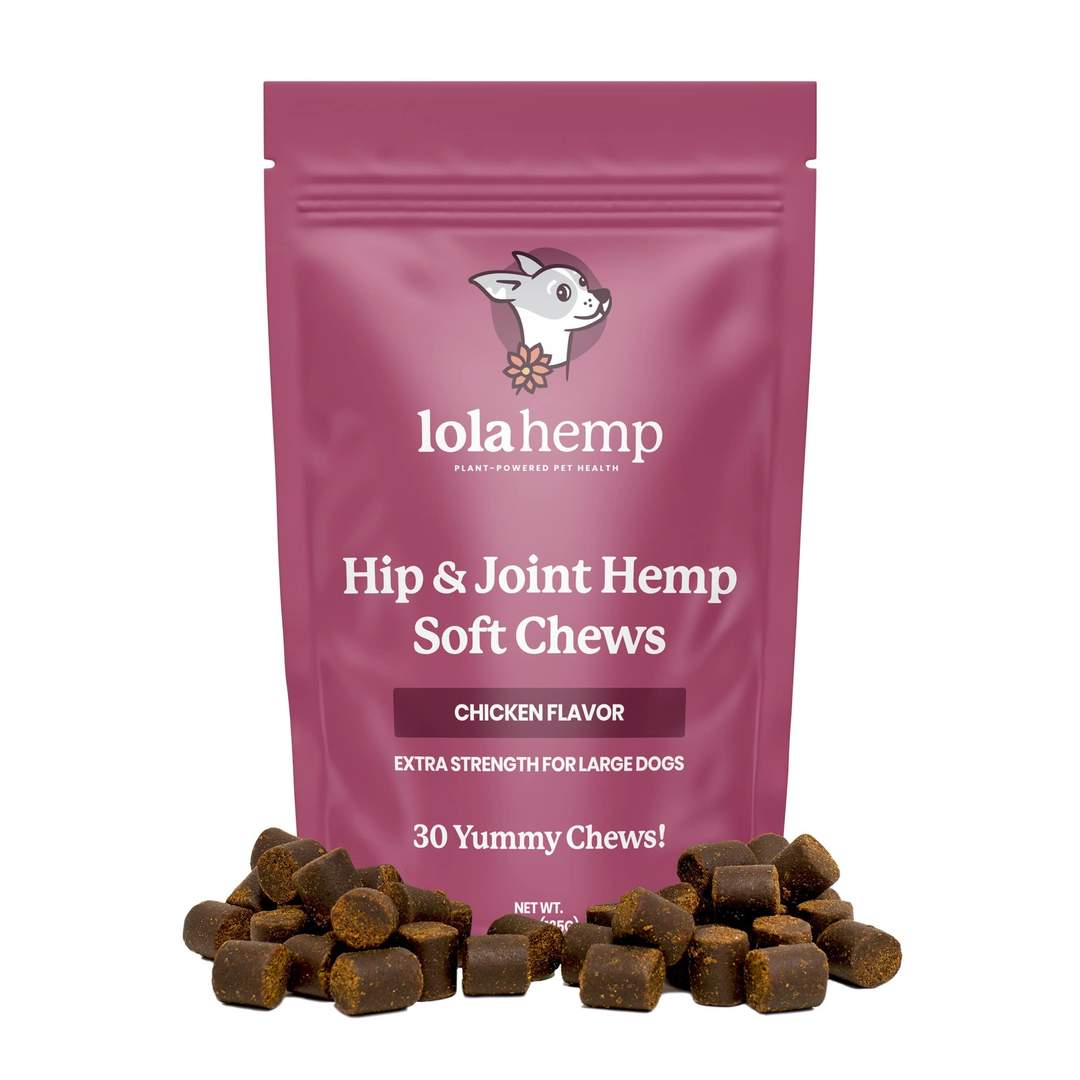Hip & joint supplements can be a very effective option for dogs experiencing issues like arthritis and hip dysplasia. At the same time, some of the ingredients included in these supplements can negatively impact a dog's kidneys, especially if they're overused.
This article looks into the hip & joint supplements for dogs that are considered safe for kidney health, as well as some things to watch out for to ensure your dog isn't suffering as a result of a new product or supplement.
Let's get started.
- The Reason Joint Supplements are Hard on Canine Kidneys
- 4 Dog Joint Supplements That are Safe for Kidneys
- Joint Supplement & Kidney Safety Chart
- Conclusion
- 1. Are hip and joint supplements safe for dogs with kidney issues?
- 2. Which joint supplements are best for dogs with kidney sensitivity?
- 3. Can glucosamine harm a dog's kidneys?
- 4. Is fish oil safe for dogs with kidney disease?
- 5. Can CBD oil be used for dogs with kidney problems?
- 6. What ingredients should I avoid in dog joint supplements if my dog has kidney disease?
- 7. How can I safely introduce a new joint supplement to a dog with kidney sensitivity?
The Reason Joint Supplements are Hard on Canine Kidneys
The key reasons joint supplements can be hard on dogs' kidneys are high phosphorous content, excess protein, high salt content, contaminants, and high fat content.
All of these qualities contribute to difficulty when processing these things through the kidneys. These things can contribute to, or worsen kidney sensitivity. These qualities also make supplements dangerous for dogs with chronic kidney disease. Let's take a look at a few options that are gentler on your dog's kidneys.
4 Dog Joint Supplements That are Safe for Kidneys
It's important to note that most hip and joint options for dogs are considered safe in the appropriate dosages. In most cases, over-feeding or trying to speed up the benefits by giving your dog higher dosages is the cause of supplement-related kidney issues. This is especially true if you give your dog high doses of supplements continuously (over the course of days or weeks).
Additionally, giving your dog supplements designed for humans, even if they contain the same or similar ingredients, is a big cause of supplement-related kidney issues in dogs. Products made for humans fall under different guidelines, and have vastly different dosage requirements. Even though the pill looks the same size, for example, it can have very different contents.
With that in mind, the following are four potential hip & joint supplement options that are generally considered safe for your dog's kidneys while supporting joint health.
1. Green-Lipped Mussel
Green lipped mussel is a natural supplement that contains omegas, DHA, EPA, and ETA. The key ingredient in that list is ETA (eicosatetraeoic acid), which is considered a powerful natural anti-inflammatory that is extremely rare in nature.
ETA is found in trace amounts in other shellfish, but Green Lipped Mussels may be the most concentrated natural source. This is what makes them such a rare and powerful joint supplement for dogs. GLM also contains glycosaminoglycans (glucosamine & chondroitin sulfate) which are also common in other joint supplements.
Green lipped mussel is low in phosphorus and generally considered kidney-friendly.
2. CBD Oil
CBD oil is a natural supplement derived from the hemp plant that has been shown to support hip & joint health in dogs in various studies. Many dog parents have had great success using CBD oil or treats for their dogs' hip and joint health.
CBD oil may inhibit the perception of discomfort while supporting the inflammatory response in dogs. In this way, it may naturally improve comfort and help root causes of discomfort at the same time.
CBD oil is generally considered safe, even for dogs with kidney sensitivity. Ensure that the product you use is organic and free from additional ingredients. You must also use the appropriate dosage for your dog, according to their weight.
3. Fish Oil
Fish oil is a natural supplement rich in omega-3 fatty acids that has been shown to support hip & joint health in dogs. Many pet parents turn to fish oil to help manage joint stiffness, inflammation, and mobility issues—especially in aging dogs.
Fish oil contains EPA and DHA, two potent anti-inflammatory compounds that may help reduce joint discomfort and improve flexibility. By supporting the body’s inflammatory response, fish oil may not only relieve symptoms but also help protect joint tissue over time.
Fish oil is generally considered safe for dogs, including those with early kidney sensitivity—especially when used at moderate dosages. Always choose a product made specifically for pets, free from heavy metals and additives, and store it properly to avoid spoilage.
As with any supplement, it's important to follow dosage guidelines based on your dog's weight and consult your veterinarian if your dog has underlying health conditions.
4. MSM
MSM is a natural sulfur compound commonly used in joint supplements to help support flexibility, mobility, and comfort in dogs. It’s often included alongside glucosamine and chondroitin to form a well-rounded joint health formula.
MSM is known for its anti-inflammatory and antioxidant properties, and may help reduce occasional joint discomfort, swelling, and oxidative damage. It also plays a role in collagen production, which supports the health of connective tissue, ligaments, and cartilage.
MSM is generally considered safe for dogs, including those with kidney sensitivity. It’s low in phosphorus and protein, and doesn’t place a heavy burden on the kidneys when used appropriately.
As always, it’s important to follow dosage instructions and choose a product made for pets to ensure purity and bioavailability.
Joint Supplement & Kidney Safety Chart
| Ingredient | Kidney Safety | Recommended for Kidney Disease? |
|---|---|---|
| Glucosamine (High Dose) | Use with caution in kidney-compromised dogs; may cause strain at high doses | Only under vet supervision |
| Chondroitin Sulfate | Generally safe but can contribute to kidney load when combined with glucosamine | Possibly, in low doses and with vet guidance |
| NSAID-like Botanicals (e.g., Boswellia, Willow Bark) | Use cautiously; may stress kidneys or liver with long-term use | Not recommended without veterinary approval |
| Fish Oil (High Dose Omega-3) | Beneficial in moderate doses; very high doses may cause complications | Yes, at moderate doses |
| Turmeric | Mild anti-inflammatory; caution in dogs with liver/kidney sensitivity | Maybe; needs monitoring |
| Yucca | May increase kidney workload; avoid in advanced kidney disease | Not recommended |
| Devil’s Claw | Potentially nephrotoxic; not recommended for dogs with kidney issues | Not recommended |
| Green-Lipped Mussel | Generally safe; low phosphorus and kidney-friendly | Yes |
| Eggshell Membrane | Safe; low protein and phosphorus | Yes |
Conclusion
While many dog joint supplements are potentially damaging to dogs' kidneys at high dosages, there are a few exceptions to the rule that may be the right choice for your canine companion, especially if they have a kidney sensitivity.
Always discuss changes to your dog's supplement regimen with your veterinarian, as there are chances for medication interactions or adverse reactions when starting on a new option.
Frequently Asked Questions About Kidney-Safe Joint Supplements for Dogs
1. Are hip and joint supplements safe for dogs with kidney issues?
Most joint supplements are safe in appropriate dosages, but some ingredients—like high doses of glucosamine or certain botanicals—can strain the kidneys. Always consult your veterinarian before adding new supplements.
2. Which joint supplements are best for dogs with kidney sensitivity?
Green-lipped mussel, MSM, fish oil, and CBD oil are often considered kidney-friendly options when used as directed. They provide joint support without excessive phosphorus or protein content.
3. Can glucosamine harm a dog's kidneys?
At moderate doses, glucosamine is generally safe. However, excessive or prolonged high-dose use may strain the kidneys, especially in dogs with existing kidney conditions.
4. Is fish oil safe for dogs with kidney disease?
Yes, fish oil is often recommended for dogs with early kidney issues. It supports inflammation control and cardiovascular health, but very high doses should be avoided.
5. Can CBD oil be used for dogs with kidney problems?
CBD oil made specifically for pets is generally considered safe for dogs with kidney sensitivity when used properly. Always use pure, third-party-tested formulations and confirm the dosage with your vet.
6. What ingredients should I avoid in dog joint supplements if my dog has kidney disease?
Avoid high-phosphorus ingredients, NSAID-like botanicals (such as Boswellia or willow bark), and herbs known to strain the kidneys, including yucca and devil’s claw.
7. How can I safely introduce a new joint supplement to a dog with kidney sensitivity?
Start with a low dosage, introduce one supplement at a time, and monitor your dog’s behavior, appetite, and urination. Consult your vet if any unusual symptoms occur.









